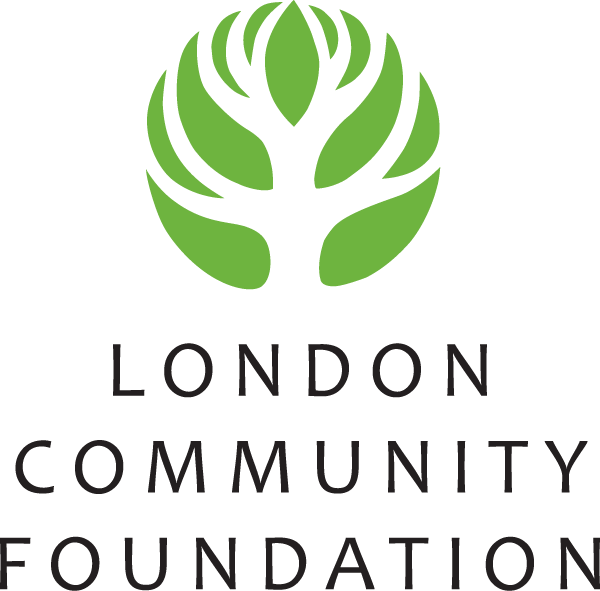Woodman Relief Fund Wrap-Up
Woodman Relief Fund Wrap-Up
Following the 2019 Woodman Avenue gas line explosion in Old East Village (OEV) in London, the Woodman Relief Fund fund was established at Libro to support individuals and households impacted by the incident.
After those directly affected by the explosion received financial support, the community wanted to make the remaining funds available to organizations working on housing, mental health, and development initiatives within Old East Village in the vicinity of Woodman Avenue. In 2023 organizations providing a program, service, or project supporting people living or working on Dundas Street between Adelaide and Charlotte Streets were encouraged to apply.
London Community Foundation supported the roll-out of the grant program and assisted the community in selecting grant recipients.
Five organizations each received a $10,000 grant from the Woodman Relief Fund to use toward community projects in 2024:
Aeolian Hall Musical Arts Association
Indwell
London InterCommunity Health Centre
Regional HIV/AIDS Connection
Unity Project
One of two gazebos built at Embassy Commons to give tenants more opportunities to comfortably socialize with one another regardless of weather conditions.
“The Woodman Street incident was a traumatic event in the community. The outpouring of support was admirable. We feel fortunate to have received some of this community love,” said Julie Ryan, Community Engagement Coordinator at Indwell.
Indwell used the majority of their funds to build gazebos outside at Embassy Commons, a 42-unit supportive housing development on Dundas Street, to give the tenants more opportunities to comfortably interact throughout the year. “It used to be so hot out here in the summer, and if it was raining, you couldn’t really be out here at all. It’s so nice to come out here now and see other people from the building,” one tenant said. Some of the remaining funds were also used to provide bus tickets and taxi vouchers to help tenants get to necessary appointments.
Unity Project also used some of their grant to help their tenants get to necessary appointments, but the majority was spent on supports and supplies such as furnishings, outfitting, ID fees, prescription costs, mattresses, bedding, and clothing.
“These resources allowed Unity Project to opt-in to offering a limited form of drop-in supports for street-involved individuals not staying with us, to alleviate the immediate suffering and meet whatever needs we can in the moment without compromising our priority population and programming obligations,” said Silvia Langer, Development Director at Unity Project. During the grant period, “three moms-to-be were adequately housed, with ample start-up resources provided with thanks to this grant,” Silvia said.
Between May and September 2024, Regional HIV/AIDS Connection (RHAC) used their funds to run a peer-supported community engagement and clean-up campaign, which saw RHAC service users trained in the safe collection and removal of discarded substance use supplies. Paired with RHAC staff, the participants would then undertake one, two, or three-hour “community sweeps.”
“Participants and the program coordinator noted that almost everyday citizens and community members reached out to them to thank them for their work and efforts to create a cleaner, safer community,” said Regional HIV/AIDS Connection’s Director of Harm Reduction, Megan Van Boheemen. During the time the program was being run, 3,210 syringes were recovered from the Woodman neighbourhood by over 140 people with lived and living experience of substance use and homelessness who wanted to keep their community safe and clean. The majority of the funding was paid to participants as $17/hour honorariums to thank them for their participation.

